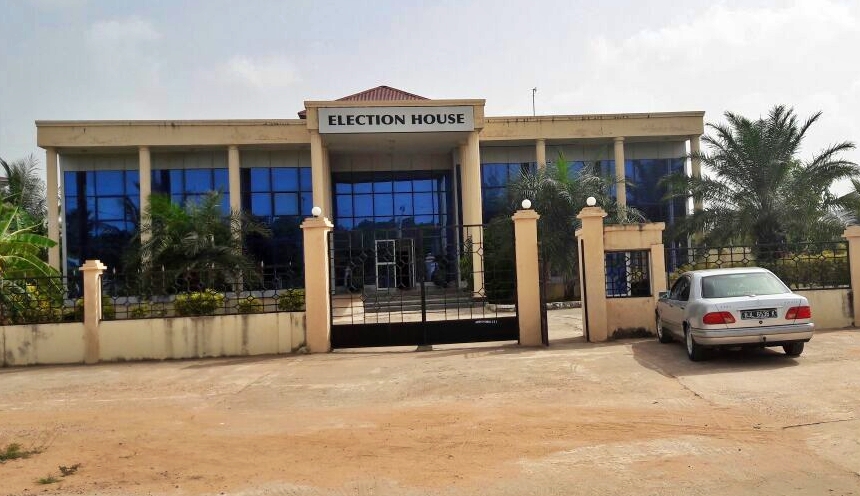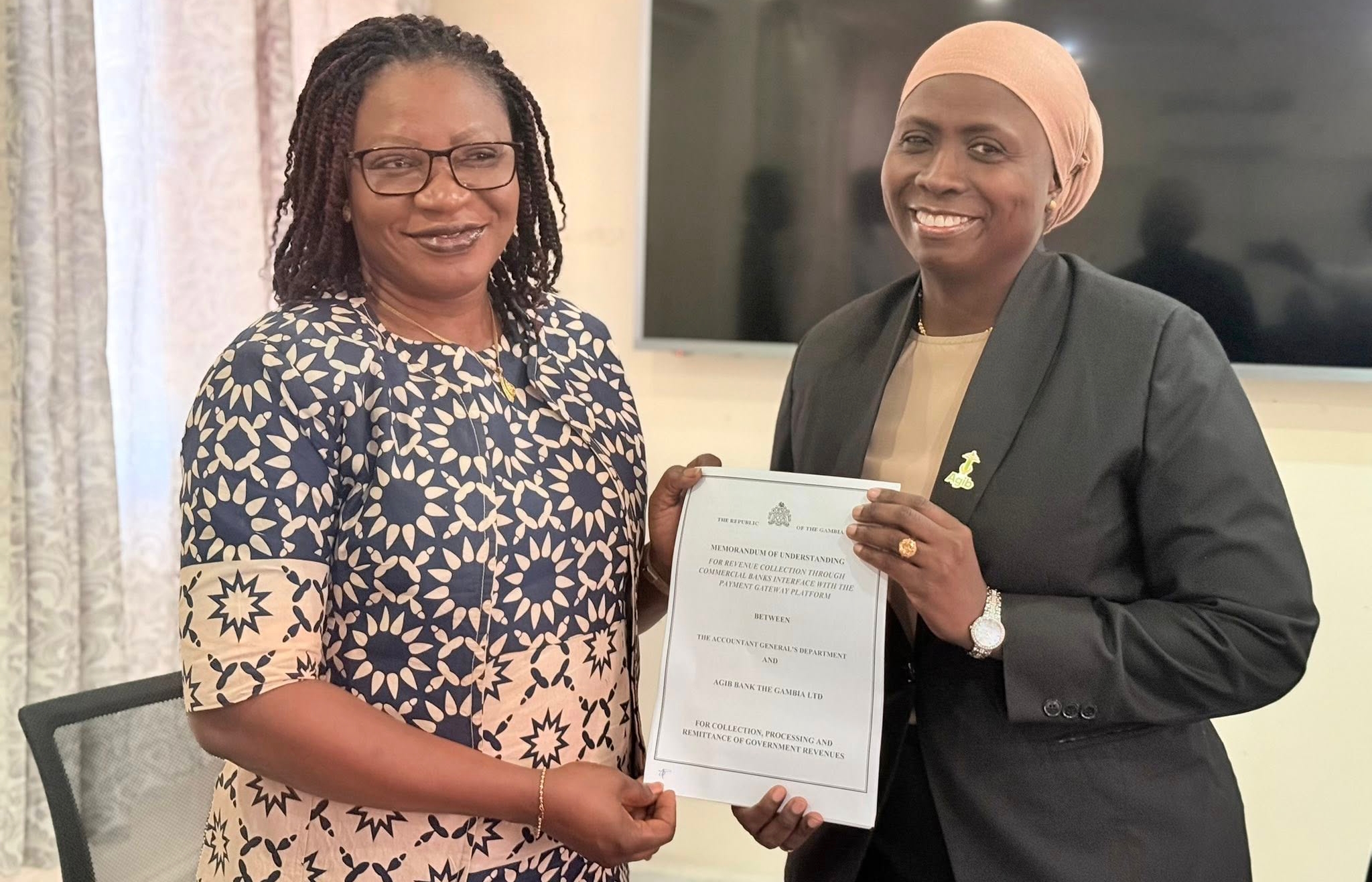BANJUL, The Gambia — In a major step toward improving transparency and efficiency in government revenue collection, the Government of The Gambia has signed a Memorandum of Understanding (MoU) with the Arab-Gambian Islamic Bank (AGIB) to facilitate public payments through bank transactions instead of cashiers at government ministries.
Under the new system, citizens seeking government services — such as acquiring machine-readable passports, registering businesses, paying for land fees, development permits, fishing and quarrying licenses, mining royalties, and other revenue lines — can now make payments directly at AGIB branches across the country.
Once collected, AGIB will consolidate and remit the funds twice weekly to the Central Bank of The Gambia, creating a structured, auditable, and efficient flow of public revenue. The agreement, signed at the Accountant General’s Department (AGD) in Banjul, is part of a broader initiative to digitize revenue collection through the Commercial Banks Interface with the Payment Gateway Platform.
How the System Will Work
The mechanism is simple yet transformative. Individuals will visit an AGIB branch, inform the teller of the specific government service they are paying for, and make the required payment.
AGIB will then record this transaction digitally and issues a digital receipt, which is tied to the Payment Gateway Platform — allowing real-time tracking and reconciliation by the Accountant General’s Department.
On the backend, AGIB will aggregate all the payments collected on behalf of the government and remit these funds electronically to the Central Bank of The Gambia twice a week, ensuring consistent and verifiable deposits into government accounts.
This eliminates the current system where payments are made to government cashiers, a process often marred by delays, inefficiencies, and a lack of clear auditing trails — long considered a potential vulnerability for corruption and inefficiency.
A Shift Toward Transparency
Accountant General Agnes Macaulay described the move as a “long-awaited journey” and a transformative shift in how public finances are managed.
“We want to change the trajectory of this nation,” she said during the MoU signing. “As accountants, we don’t want to be handling money. We want to leave it with the banks and fintech companies whose core competence is in that. We are removing the cashiers from ministries and empowering institutions with the skills and technology to manage transactions securely and transparently.”
According to Macaulay, this marks the beginning of a phased rollout. Future stages will allow citizens to use mobile apps and other digital platforms to pay for services remotely — further broadening access, particularly in rural areas, and eliminating the risks and delays associated with manual cash handling.
A Model for Future Reforms
AGIB Managing Director Isatou Jawara hailed the agreement as a milestone in the drive for improved public financial management.
“This partnership is a significant step in our shared mission to enhance transparency, efficiency, and accountability in public revenue collections,” she said. She praised the collaboration between the technical teams of AGIB and AGD, particularly the IT departments, for laying the digital groundwork that will support the new system.
This partnership is expected to be a model for similar collaborations with other commercial banks and fintech institutions, as the government seeks to eliminate in-person cash payments altogether.
Macaulay emphasized that the ultimate goal is full digitization. “This is just the beginning. In another phase, we will allow people to use their mobile apps to make payments to access government services.”
By moving revenue collection into formal financial systems, the government is signaling a clear break from legacy systems prone to mismanagement. The initiative promises not only to improve service delivery but also to significantly reduce the opportunity for graft in public offices.
As this new model rolls out, citizens can expect faster service, clearer receipts, fewer queues, and an overall smoother experience when engaging with the state — a win-win for the people and the government.










